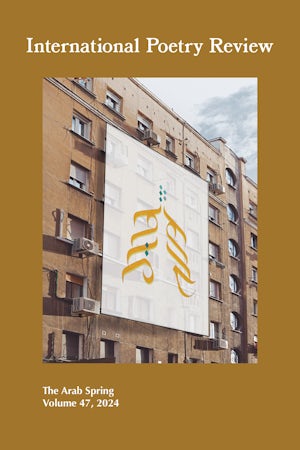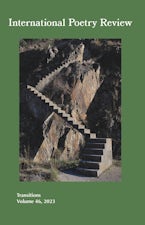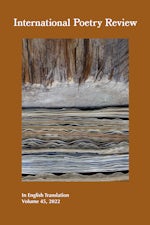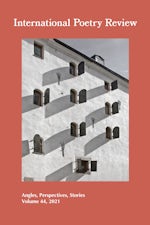International Poetry Review
The Arab Spring, Volume 47, 2024
Edited by Ana Hontanilla, Suja Sawafta
Guest edited by Suja Sawafta

238 pp., 5.5 x 8.25
-
Paperback ISBN: 978-1-4696-7734-7
Published: May 2024
Paperback Available May 2024, but pre-order your copy today!
Buy this Book
Distributed for the UNC Greensboro Department of Languages, Literatures, and Cultures
At the time of the publication of issue number 47.2024, conflict had broken out between Israel and Palestine. We at the International Poetry Review believe literature is a tool for hope and a source of healing. This issue offered a unique platform for our contributors to humanize resistance while standing in favor of bread, freedom, and justice. Poets wrote about violence’s devastating consequences, exposing its causes, and promoting peace, tolerance, and respect. This issue provided a safe space for reflection and transformation.



